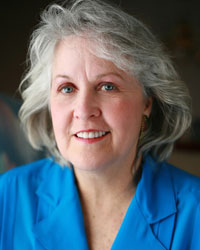Prosthodontist - Denture and Prosthodontic Questions

Q. What is a prosthodontist?
A. A prosthodontist is a specialist in the restoration and replacement of broken and missing teeth. Their training lasts an additional three years after four years of dental school. During that time, a prosthodontist is taught in greater detail about both removable and fixed prosthodontics.
Removable prosthodontics includes replacing missing teeth with appliances that the patients themselves can take in and out of their mouth, such as dentures and partial dentures.
Fixed prosthodontics includes replacing missing and/or broken teeth with restorations that the patient cannot take in and out, such as veneers, crowns, bridges, and implants.
Q. What are dentures?
A. Dentures are removable prosthetic devices designed to replace missing teeth.
Q. What are complete dentures?
A. Complete dentures are dentures that replace a complete set of missing teeth.
Q. What is the difference between conventional dentures and immediate dentures?
A. Conventional dentures are dentures that are made and placed after the remaining teeth are removed and the tissues have healed. Immediate dentures are dentures that are placed immediately after the removal of the remaining teeth.
Q. What is an over-denture?
A. An over-denture is a denture that fits over a small number of remaining natural teeth or implants.
Q. What do dentures feel like?
A. For a few weeks, new dentures will feel awkward until you become accustomed to them. They might feel loose until the cheek and tongue muscles learn to hold them in position. It is not unusual to feel minor irritation or soreness. The patient needs to see his or her dentist or prosthodontist for regular fit adjustments to relieve any sore areas.
Q. Are you able to eat with dentures?
A. Eating with dentures will take a little practice. You should start with soft foods that are cut into small pieces. As you become used to chewing, you can return to your normal diet.
Q. Are there foods you should avoid if you wear dentures?
A. There are only a few eating restrictions for denture wearers. Avoid biting down directly on crunchy or hard foods, like whole apples, hard pretzels, crusty bread, or large sandwiches. They can break because of the angle where the denture comes into contact with the hard surface.
Biting is limited only by the stability of the dentures themselves. Insufficient bone structure (shrunken bone ridges covered by gum tissue), old or worn dentures, and a dry mouth decrease stability.
Q. If you wear dentures, are dental adhesives necessary?
A. Today's dentures have been significantly improved through advances in both dental and materials technologies. As a result, dentures that fit properly usually do not require adhesives to secure the dentures. When you are just getting used to dentures, adhesives may be advised, but otherwise should not be necessary.
A loose denture is a sign that it doesn't fit your mouth correctly. When first getting used to dentures, you may notice them slipping when you laugh, smile, or cough, which is caused by air getting under the base and moving it. The more you wear dentures, the better you will be able to control their movements in these situations.
If your mouth has insufficient bone structure, dentures will be more difficult to retain. Your dentist or prosthodontist may advise the placement of implants. These are placed in the bone and retain the denture with small, precision attachments.

+Jim Du Molin is a leading Internet search expert helping individuals and families connect with the right dentist in their area. Visit his author page.
If Your Dentures Make Your Mouth Sore

Having dentures should not hurt. People who wear dentures may experience temporary oral irritation or soreness. Eating certain foods may cause temporary pain. For example, a seed or peanut may slip under a denture and cause irritation to the gum.
This type of irritation usually goes away after a few days once the source of trouble (in this case the seed or peanut) is removed. Often, it may be more comfortable to leave the denture out of the mouth during this healing.
Dentures are custom made specifically for your mouth; therefore, new dentures often require adjustments to areas that rest directly on the soft tissue. Sometimes, due to bony ledges and undercuts, dentures require alteration. To improve the balance and pressure of the denture during eating, the bite is sometimes adjusted.
Adjusting a denture requires a quick and simple dental visit. The denture dentist may use an indicator paste or marker on the irritated mouth tissue, which is then transferred to the denture upon placement, to determine the exact location on the denture that needs adjusting.
A rotary dental hand piece is used to contour the denture. Often, relief of an impinging denture improves comfort immediately; however, keeping the denture out of the mouth for a while may help the irritation or sore heal. After a few weeks, discomfort associated with a new denture often is eliminated and the denture functions without pain.
Over time, the mouth undergoes changes that can affect the fit of a denture. Since the bone and gum tissue of your mouth changes over time, it is important that denture wearers visit the denture dentist at least once a year for an oral examination, including an oral cancer examination.
A denture dentist can exam your mouth to determine the cause of your pain, evaluate your soreness and irritations, and adjust your denture. Depending upon the severity of the denture sore and the length of time the denture has not been in the mouth, it may be necessary to wear the denture the day before the dental visit so that the dentist can accurately resolve the problem. Often, a few denture adjustments will resolve discomfort associated with your denture.
Seeing a denture dentist can help improve the fit, function, and look of your denture, as well as detect any problems that are not related to the denture.
by Denise J. Fedele, D.M.D., M.S.

+Jim Du Molin is a leading Internet search expert helping individuals and families connect with the right dentist in their area. Visit his author page.










